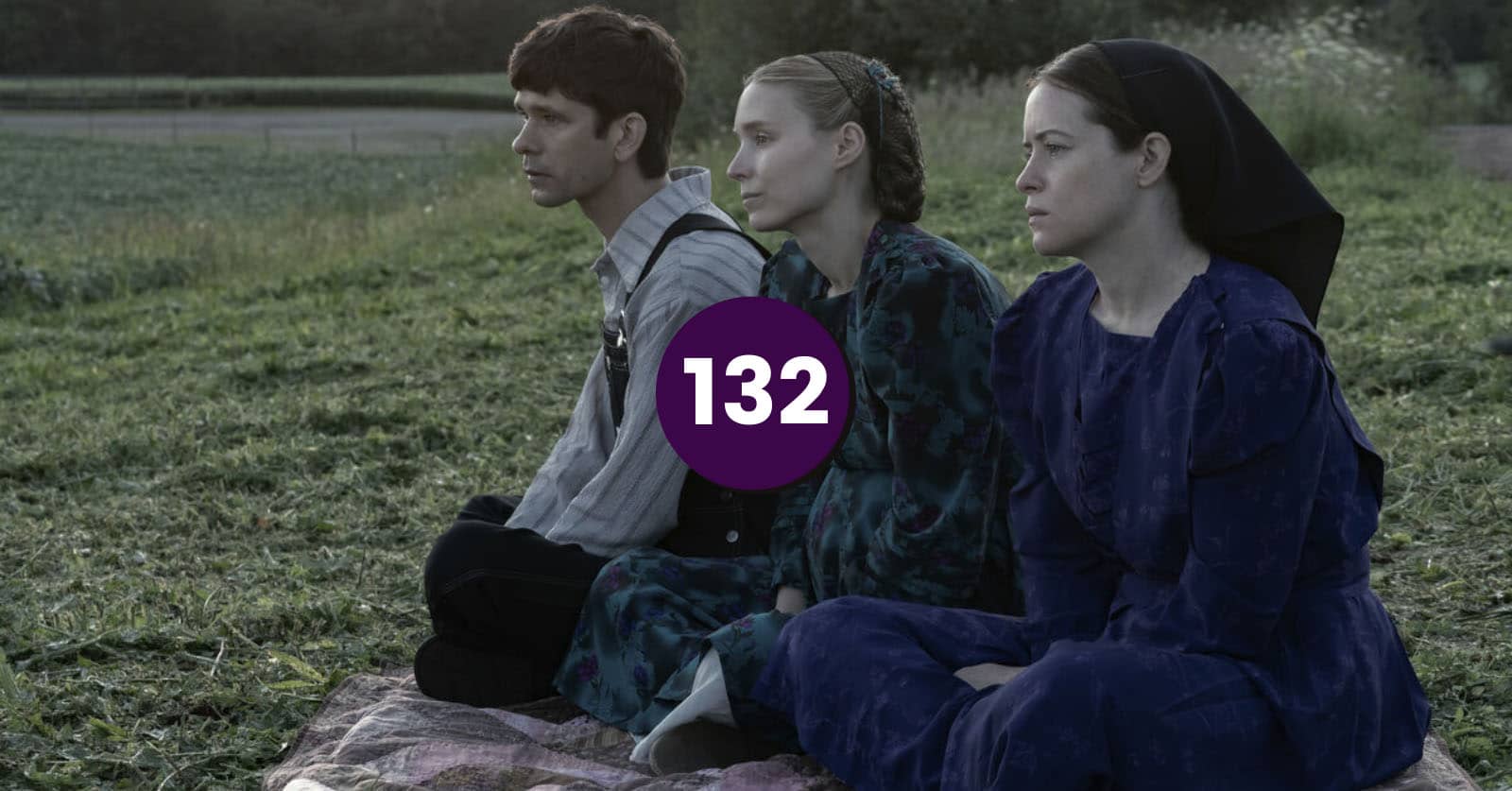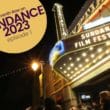In this episode of the podcast, we discuss Sarah Polley’s new Oscar hopeful film: her screen adaptation of the Miriam Toewes’s novel Women Talking. We talk about how the film works (or doesn’t) as an adaptation, its lack of specificity in depicting a mennonite community, and the many problems that plague the film.

Discover one film you didn’t know you needed:
Not in the zeitgeist. Not pushed by streamers.
But still easy to find — and worth sitting with.
And a guide to help you do just that.
About the episode
At Seventh Row, we’ve been long-time fans of Sarah Polley. We have even published episodes on her films Take This Waltz and Stories We Tell. Women Talking is her first bad, if well-intentioned, film. But it’s been getting enormous Oscar buzz since its Telluride premiere.
In this episode, we discuss why the film Women Talking didn’t work on every level. This includes the didactic screenplay, the bland and placeless production design, the typecasting, and the poor direction of group scenes. We are joined by special guest Dr. Angelo Muredda, who has a PhD in CanLit.
Additionally, Angelo and Alex read the book by Miriam Toews, on which the film is based. We discuss the problems in the source text that get translated into the film. We also discuss how the film works (or doesn’t) as a page-to-screen adaptation.
This episode features Editor-in-Chief Alex Heeney, Executive Editor Orla Smith, as well as special guest Dr. Angelo Muredda.
About the film Women Talking
Based on a true story that happened in Bolivia, Women Talking is a fictional reimagining with an alternate ending. Almost every woman and girl in a small Mennonite community has been raped in their sleep by men or boys in the community. Traumatized and beaten down, a group of women volunteers from three families convene for a couple of days to discuss what the women should do. They must decide whether to stay and fight or to leave. The film then follows them through their discussions. The film Women Talking was adapted from the Miriam Toewes novel of the same name by Sarah Polley.
On the podcast episode on the film Women Talking
- 00:00 Introduction
- 04:40 Why are we talking about Women Talking?
- 07:20 An overview of our problems with Women Talking
- 25:05 Adapting Miriam Toews’s novel
- 34:00 The lack of specificity in Women Talking’s depiction of a Mennonite community
- 36:50 The casting and performances in Women Talking
- 52:10 The film’s treatment of its trans and disabled characters
- 1:06:05 Sarah Polley’s direction and the film’s cinematography
- 1:19:55 How Women Talking fits into CanLit
- 1:24:00 Why is this film resonating?
Show Notes on the podcast on Sarah Polley’s film Women Talking
- Read the 2019 New York Times article that Alex cites on the episode: in the piece, mennonites are interviewed about their thoughts on Miriam Toews’s novel, Women Talking.
- Read Alex’s interview with the writer-director of Felix & Meira, a film about a Hasidic Jewish woman who decides to leave her community. On the episode, Alex compares Women Talking to films about Hasidic Jews.
- Read Alex’s interview with the writer-director of Menashe, a film about Hasidic Jews made with actors who are part of the Hasidic Jewish community. On the episode, Alex compares the depiction of mennonites in Women Talking to the depiction of Hasidic Jewish characters in Menace
- Read Angelo’s recent review of Armageddon Time for Film Freak Central.
Related episodes
- Ep. 43: Take This Waltz and Paper Year: Canadian marriage stories (Members Only) – We go deep on Sarah Polley’s second feature, Take This Waltz, a film about a marriage breaking up, and compare it to another female-directed Canadian film about a troubled marriage, Paper Year.
- Ep. 40: Stories We Tell, Louder Than Bombs, & Mouthpiece: Dead mothers (Members Only): We discuss Sarah Polley’s third feature, the creative nonfiction film Stories We Tell alongside two of our favourite films that are also about dead mothers. All three films were on Seventh Row’s 50 favourite films of the decade list.
- Ep. 73: Promising Young Woman and The Assistant: Explorations of rape culture (Members only): We discuss two films that explore rape culture, one that does it thoughtfully (The Assistant) and also one that does it poorly (Promising Young Woman). In the current episode, we regularly compare Women Talking to Promising Young Woman and refer back to this discussion in Ep. 73
- Bonus 27: Empathy on film with Dr. Brett Pardy (FREE to everyone) – Dr. Pardy did his PhD research on how films can create empathy, and we also discuss on Ep. 132 how Women Talking fails to create empathy.
Speakers on this episode
Special Guest Angelo Muredda holds a PhD in disability studies on Canadian Literature and is also a lecturer in the English department at Humber College. Angelo has also contributed to our ebook Portraits of resistance: The cinema of Céline Sciamma with an essay on the female gaze, and to our ebook Roads to nowhere: Kelly Reichardt’s broken American dreams with an essay on Wendy and Lucy. Find Angelo on Twitter and Instagram at @amuredda.
Host Alex Heeney is the Editor-in-Chief of Seventh Row. Find her on Twitter @bwestcineaste.
Host Orla Smith is the Executive Editor of Seventh Row. Find her on Instagram @orla_p_smith.
Episode transcript
The transcript for the free excerpt of this episode was AI-generated by Otter.ai.
[fusebox_transcript]

